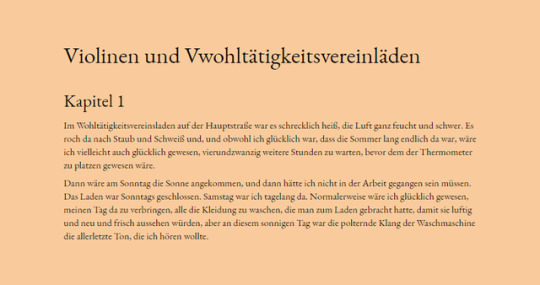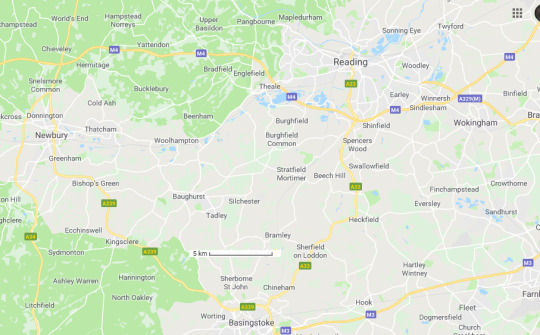#i think ihr was just the 18th century’s sie
Explore tagged Tumblr posts
Text
HAMILTON HAS A GERMAN TRANSLATION????
#i have mixed feelings about hamilton don’t get me wrong#but they translated the american history musical??#i haven’t been this excited since i found out my fair lady had a german translation#ok das wichtigste zuerst:#hamilton does not siezen OR duzen washington but a secret third thing#ihrzen?#is this some sort of even MORE respectful anrede because he’s the president- no wait washington is doing it too#hang on checking something#hamilton and burr also address each other as ihr#i think ihr was just the 18th century’s sie#but wait! hamilton and burr switch to du midway through the room where it happens#was hast du dir dabei gedacht new york city an den süden zu verraten#that’s an odd place to make the switch! would’ve thought during non-stop if anywhere#actually maybe it does make sense#they still respect each other in non-stop#room where it happens is kind of the turning point in their relationship#i can’t find the german lyrics to your obedient servant but i bet they’re FASCINATING#this is so cool
5 notes
·
View notes
Photo

Inside the Writing Process - Part 4b
Bilingual Writing (Part 2): Composition in German Zweisprächiges Schrieben (Teil 2): deustche Komposition
Violinen und Vwohltätigkeitsvereinläden - Kapitel Eins
Yes, yes, this is the worst and stupidest title I could possibly give to any book ever, and, no, no, that is not how you spell “Wohltätigkeitsvereinsladen”, but I’m determined to title all these books in the same way, so that’s the monstrosity attached to this one. Let me explain. I swear there’s a semi-decent reason.
It means “Violins and Charity Shops” (or “Vcharity Shops”, which is also not how you spell “charity shops”). Such fun. Why?
I’ve been working on the first ideas I’ve got for the dark academia novel based on the Violins and Violets series, inspired by the story of a Reading charity shop where 18th century manuscripts of Wolfgang Amadeus Mozart’s compositions were found: read about it here, here and here!
The reports are quite contradictory, jumping between “a charity shop in Reading” and “a charity shop in Newbury”... they’re often referred to as “the same place”, but... they’re really not. Here’s a map.
Ja, ja, OK, ich weiß, das hier ist die schlechtste und doofste Titel ich könnte je jedem Roman geben, und, nein, nein, so schreibt man "Wohltätigkeitsvereinsladen" ja nicht, aber ich will alle diese Werken mit ähnlichen Titeln versehen, also trägt dieses Buch dieser Monstrosität. Lass mir das erklären, ich schwore, es gibt einem (halbwegs ordentliches) Grund dafür.
Es heißt "Violins and Charity Shops" (oder "Vcharity Shops", und was sich auch nicht so schreibt). Solches Spaß. Warum?
Ich arbeite auf die ersten Ideen, die ich für meinem "dark academia" (dunkle... Wissenschaft?) Roman habe, den von der Geschichte inspiriert wird, eines Wohltätigkeitsvereinsladen in Reading, wo man einige Mozart-Manus aus dem 18. Jahrhundert gefunden hat. Lies hier, hier und hier darüber!
Die Berichten verfangen sich in Widersprüchen; man kann sich nicht entscheiden, ob das Laden in Reading oder in Newbury war. Sie lesen sich oft so vor, als wären Reading und Newbury im gleiches Platz, aber... das sind die zwei Städte wirklich nicht. Hier, eine Landkarte.

Reading’s closer to Sandhurst (where I grew up) than it is to Newbury, and I wouldn’t at any point say “I grew up in Reading”. It’s where we went to buy fabric, and to do our Christmas shopping, because the shopping centre there was our nearest large one. I don’t know if I’d call Newbury part of Reading. The train ride between them is something like half an hour, so... while that’s not a really long way, it isn’t really close, either. Who knows?
Anyway, it’s not the only time Mozart’s been found in a charity shop, and as I love both Mozart and charity shops (all two things, I know, I know, such variety (sarc.)), I quite want to explore this idea in my stories. Obviously it’s not Mozart, here, it’s Hans Schmidt, but... ooh, I’m excited about it!
To quote this lovely blog (which has some very beautiful photos):
It’s slightly tatty, torn in places, held together with old peeling tape. It’s yellowed with age and there are pen marks in the margins. But it’s oh so beautiful and full of history, its obviously been well loved and well used before it was abandoned in the 50p box at the back of the charity shop. I wish it could tell it’s story….
Isn’t that just so intriguing? What am I meant to do with that? Not turn it into a book? Come on. I’m a musician and a sociolinguist. Old letters, old music manuscripts, these things are all rich in information about times long past. I want to write this book so much it hurts, so, without further ado, let’s introduce:
Inside the Writing Process - Part 4b
Bilingual Writing (Part 2): Composition in German
Reading ist Sandhurst (wo ich groß geworden bin) viel näher als Newbury, und ich sägte nie, "Ich bin in Reading erwachst". Nach Reading sind wir gefahren, wann wir Bausubstanz oder Weihnachtsgeschenken kaufen wollten, weil es da einem großen Einkaufszentrum gab, und nichts näher, was so groß war. Ich weiß nicht, ob ich Newbury "Teil Readings" nennen würde. Mit dem Zug dazwischen zu fahren dauert eine halbe Stunde, also... obwohl das keinen langen Fahrt ist, sind die zwei sich nicht sehr nah. Wer weiß?
Das ist jedoch nicht der einzele Zeit gewesen, wo sich Mozart in einem Wohltätigkeitsvereinsladen gefunden hat. Da ich beide Mozart und Wohltätigkeitsvereinsläden liebe (ich weiß, ich weiß, alle zwei Sachen, die es gibt, solche Vielfalt ist wünderschön (Sarkasmus)) will ich durch meinen Geschichten dieses Idee erkunden. Klar wäre es keinen Mozart, sondern Hans Schmidt, Hans Schmidt, aber... hüüh, darüber bin ich so aufgeregt!
Ich zitiere jetzt dieses nettes Blog (was ganz schöne Bilder habe):
Leicht schmuddelig ist es, an einigen Stellen eingerissen, und es wird von altes, abplatzendes Klebestreifen zusammengehalten. Es vergilbt vor Alter, und es gibt in die Begrenzungen Schreibabdrücke. Es ist aber ganz schön, und volle Geschichte, und ist so klar gut geliebt und gut genutzt worden, bevor dem es in einem 50p-Kast hinter im Wohltätigkeitsvereinsladen verlassen wurde. Ich wünsche, es könnte seine Geschichte erzählen...
Ist das aber nicht faszienierend? Was sollte ich damit tun? Darüber keine Roman schreiben? Wirklich. Musiker bin ich, und Soziolinguist auch. Alte Briefen, alte Musikmanus, sind alle ganz informationsreich, besonders wenn es um frühere Zeitälter geht. Ich will dieses Buch so sehr schreiben, es tut mir weh, also, ohne weiter zu warten, lass uns das bekannt machen:
Inside the Writing Process - Part 4b
Zweisprächiges Schrieben (Teil 2): deustche Komposition
Im Wohltätigkeitsvereinsladen auf der Hauptstraße war es schrecklich heiß, die Luft ganz feucht und schwer. Es roch da nach Staub und Schweiß und, obwohl ich glücklich war, dass die Sommer lang endlich da war, wäre ich vielleicht auch glücklich gewesen, vierundzwanzig weitere Stunden zu warten, bevor dem der Thermometer zu platzen gewesen wäre.
Dann wäre am Sonntag die Sonne angekommen, und dann hätte ich nicht in der Arbeit gegangen sein müssen. Das Laden war Sonntags geschlossen. Samstag war ich tagelang da. Normalerweise wäre ich glücklich gewesen, meinen Tag da zu verbringen, alle die Kleidung zu waschen, die man zum Laden gebracht hatte, damit sie luftig und neu und frisch aussehen würden, aber an diesem sonnigen Tag war die polternde Klang der Waschmaschine die allerletzte Ton, die ich hören wollte.
It was dreadfully hot in the charity shop on the High Street, the air all damp and heavy. It smelled like dust and sweat, and, although I was glad that summer had arrived at long last, I might have been just as happy to wait twenty-four hours for the thermometer to start exploding.
Then the sun would have come out on Sunday, and then I wouldn’t have had to go to work. The shop was closed on Sundays. I was there all day on a Saturday. Normally I would’ve been happy to spend my day there, to wash all the clothes people brought in, so that they’d look airy and new and fresh, but, on this sunny day, the washing machine’s thumping was the last sound I wanted to hear.
Ich schreibe die erste Version dieses Romans auf Deutsch, und übersetze ihr danach ins Englische, fast genauso wie ich “Violinen und Violetten” geschrieben habe (hier diskutiert), weil ich Deutsch studiere, und gern auf Deutsch komponiere! Gerade lese ich (außer meinem Studium) “Die geheime Geschichte” von Donna Tartt, ins Deutsche übersetzt, und ich finde es ganz wünderschön und lustig.
Ich glaube, ich glaaaauuuube, ich werde dieses Roman schreiben, in Southampton statt zu finden, weil ich der Stadt ganz gut kenne, und weil es da so viele Wohltätigkeitsvereinsläden gibt, aber ich weiß nicht. Vielleicht werde ich das wiederholen, was ich mit “Sie hat keine Name” getan habe, und werde eine neue Stadt erfinden, damit ich alles machen kann, was ich will, ohne mich darum zukümmern, wie genau sich der Stadt gebaut hat. Weiß ich immer noch nicht.
Aber! Deutsch! Ins Englische! Vielleicht nochmal ins Deutsche, wenn ich eine gute Version fertig geschrieben habe. Man wird’s sehen. Es macht mir so viel Spaß, auf Deutsch zu schreiben.
I’m writing the first version of this novel in German, to be translated into English afterwards, almost exactly as I wrote “Violins and Violets” (discussed here), because I’m studying German, and like composing in German! I’m currently reading (outside my studies) “The Secret History” by Donna Tartt, in German translation, and it’s wonderful and funny.
I think, I thiiiiiiink, I’ll write this novel as taking place in Southampton, because I know the city very well, and because it has so many charity shops, but I don’t know. Maybe I’ll repeat what I did with “She Has No Name”, and invent a new city, so that I can do whatever I want, without worrying about how the city’s laid out. I still don’t know.
But! German! Into English! Maybe into German again, when I’ve finished writing a good version. We’ll see. It’s so much fun, writing in German.
#writeblr#blog#inside the writing process#bilingual#deutsch#englisch#german#english#translation#translator#bilingual writing#bilingual author#dark academia#langblr#studyblr#writer's life#student life#university#university life#student#languages#german student#deutsche langblr#deutsche writeblr#deutsche studyblr#writing process
1 note
·
View note